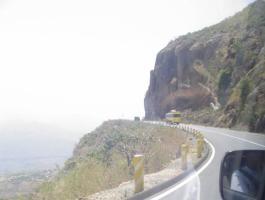A new report by the Wetlands International highlights how poor water management leads to degradation of ecosystems, and is an overlooked cause of human migration, including to Europe.
The report, ’Water Shocks: Wetlands and Human Migration in the Sahel’ is aimed at highlighting to policymakers the relationship between the health of wetland ecosystems and involuntary human migration in the Sahel region of Africa.
Displacement and conflict are common in the Sahel. For instance, around Lake Chad, the Boko Haram insurgency has displaced more than 2.3 million people since mid-2013, including 1.3 million children. The Lake Chad Basin has lost 95% of its surface area due to water abstraction for irrigation projects, and youths from this region are joining armed groups because of lack of opportunities.
“Humanitarian organisations need to connect their work with the environmental and development actors to find durable solutions. We need to understand better the complex and multifaceted drivers of involuntary migration, social conflict and poverty, which may be rooted in the depletion of natural resources,” concluded Juriaan Lahr, Head of International Assistance of the Netherlands Red Cross Society.
The European Union has a five-year 80 million euros funding package available to support disaster risk management across Sub-Saharan Africa. By 2020 the European Union and the African continent aim to increase energy efficiency and the use of renewables by building 10,000MW of hydropower facilities.
According to the UN, there are 20 million people in the Sahel who are food-insecure, mainly due to lack of water. If development plans for hydropower and irrigation projects do not position ecosystems at the heart of national and regional development strategies, Europe and other nations will fail to achieve their goals for sustainable development.
“Driving forward inclusive and sustainable development in the Sahel is an urgent, global priority. But this will only be achieved by shifting from the traditional development paradigms and hard infrastructure schemes which play havoc with the natural hydrology of the region,” said Jane Madgwick, CEO of Wetlands International.
“Maintaining and restoring the natural resource base is essential to increase water and food productivity and provide livelihood strategies to cope with a changing climate. In this context, wetlands such as river floodplains and lakes are disproportionately important; especially to the most marginalised people of the region,” Jane added.

